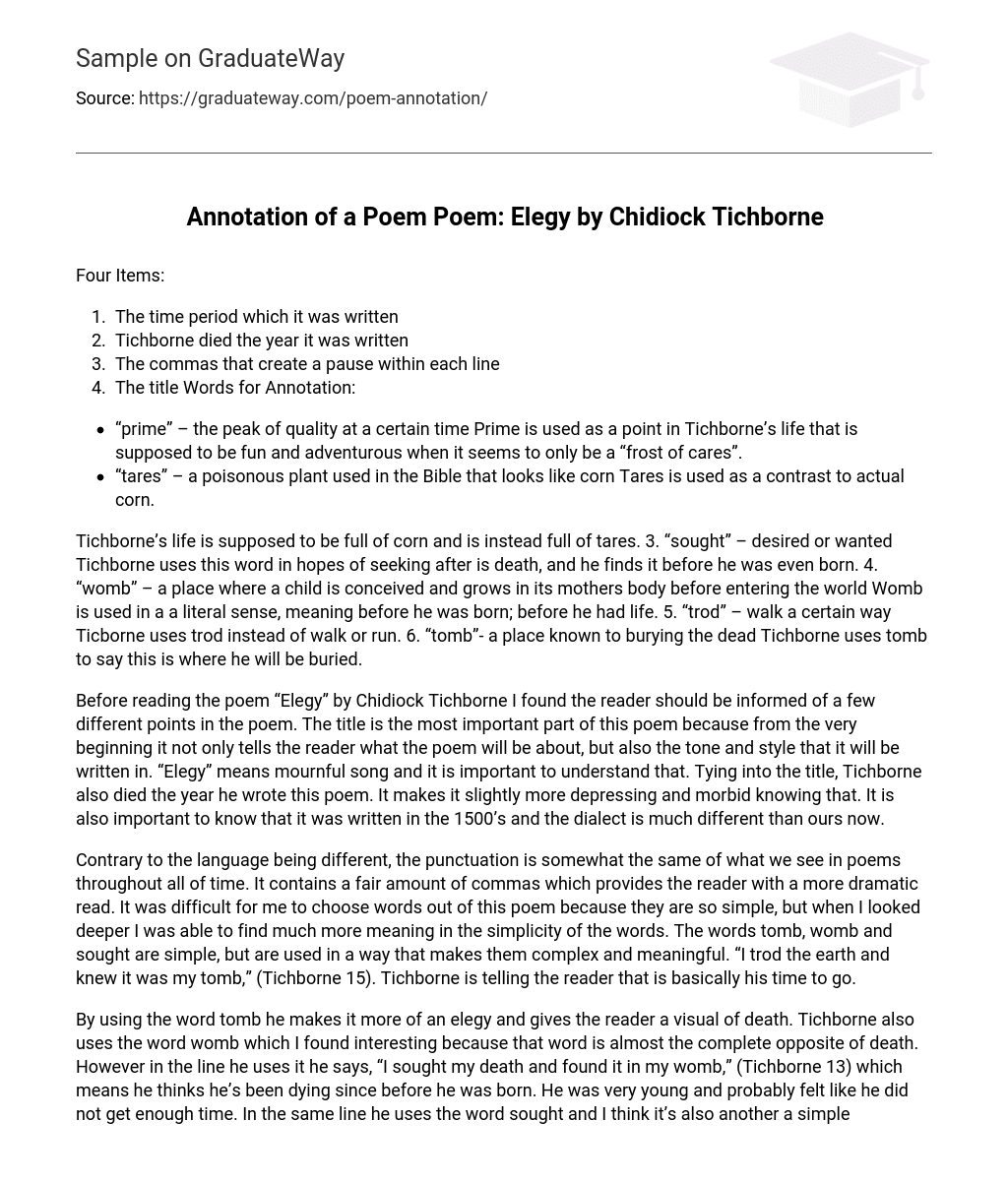Four Items:
- The time period which it was written
- Tichborne died the year it was written
- The commas that create a pause within each line
- The title Words for Annotation:
- “prime” – the peak of quality at a certain time Prime is used as a point in Tichborne’s life that is supposed to be fun and adventurous when it seems to only be a “frost of cares”.
- “tares” – a poisonous plant used in the Bible that looks like corn Tares is used as a contrast to actual corn.
Tichborne’s life is supposed to be full of corn and is instead full of tares. 3. “sought” – desired or wanted Tichborne uses this word in hopes of seeking after is death, and he finds it before he was even born. 4. “womb” – a place where a child is conceived and grows in its mothers body before entering the world Womb is used in a a literal sense, meaning before he was born; before he had life. 5. “trod” – walk a certain way Ticborne uses trod instead of walk or run. 6. “tomb”- a place known to burying the dead Tichborne uses tomb to say this is where he will be buried.
Before reading the poem “Elegy” by Chidiock Tichborne I found the reader should be informed of a few different points in the poem. The title is the most important part of this poem because from the very beginning it not only tells the reader what the poem will be about, but also the tone and style that it will be written in. “Elegy” means mournful song and it is important to understand that. Tying into the title, Tichborne also died the year he wrote this poem. It makes it slightly more depressing and morbid knowing that. It is also important to know that it was written in the 1500’s and the dialect is much different than ours now.
Contrary to the language being different, the punctuation is somewhat the same of what we see in poems throughout all of time. It contains a fair amount of commas which provides the reader with a more dramatic read. It was difficult for me to choose words out of this poem because they are so simple, but when I looked deeper I was able to find much more meaning in the simplicity of the words. The words tomb, womb and sought are simple, but are used in a way that makes them complex and meaningful. “I trod the earth and knew it was my tomb,” (Tichborne 15). Tichborne is telling the reader that is basically his time to go.
By using the word tomb he makes it more of an elegy and gives the reader a visual of death. Tichborne also uses the word womb which I found interesting because that word is almost the complete opposite of death. However in the line he uses it he says, “I sought my death and found it in my womb,” (Tichborne 13) which means he thinks he’s been dying since before he was born. He was very young and probably felt like he did not get enough time. In the same line he uses the word sought and I think it’s also another a simple word, but it is so much stronger than using “see” or “saw”.
The other three words I chose were based on my knowledge of each word. Tares, prime, and trod are all words I am unfamiliar with and I believe the reader should know the meanings of these words before reading the poem. When I looked up each word and found the meanings, the poem really came to life. Instead of reading each word like it did not exist I was able to capture a better picture in my head. The imagery of the poem relies on these words, and not knowing them will seem to make the poem dull and confusing.





